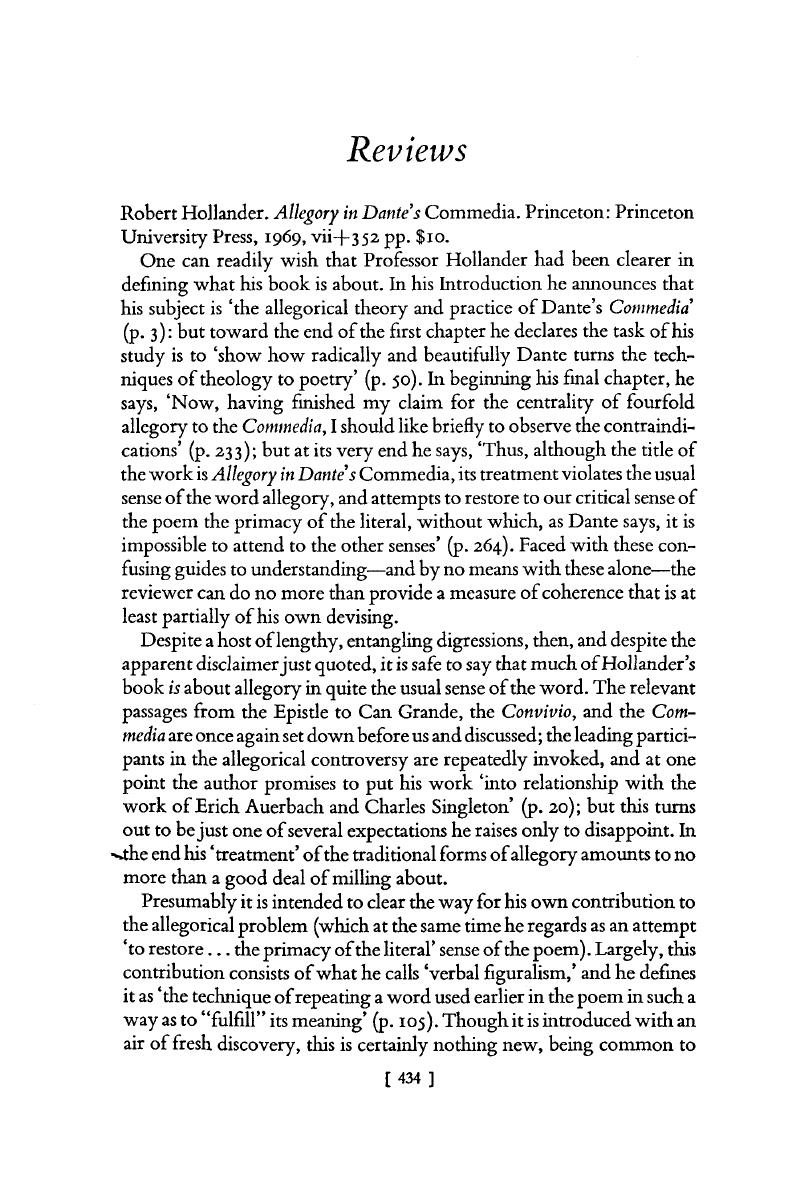No CrossRef data available.
Published online by Cambridge University Press: 20 November 2018

1 Infelicities of this kind also occur with disturbing frequency when the author is not translating. E.g., 'Dante bases his poem's structural techniques in the fourfold exegesis of the Bible … to make the poem capable of seeing God, which it does in Paradiso XXXIII …' (p. 63); or 'Dante calls Scripture "authority," as we have observed earlier, and then goes on to cite from Lucan, describing "il sommo Giove," and calls the passage scriptura paganorum, which may mean merely the writing of the pagans, and may also mean, as I have previously argued, that writing of the pagans which, like Virgil's, Dante's autore's, scrittura, speaks volutmi, and thus is, as it is in this passage, as authoritative in its way as Holy Writ' (p. 239); or '. . . the two-pronged pang for the lady of the flesh and the lady of the mind, each of which is answered by Beatrice' (p. 165n).